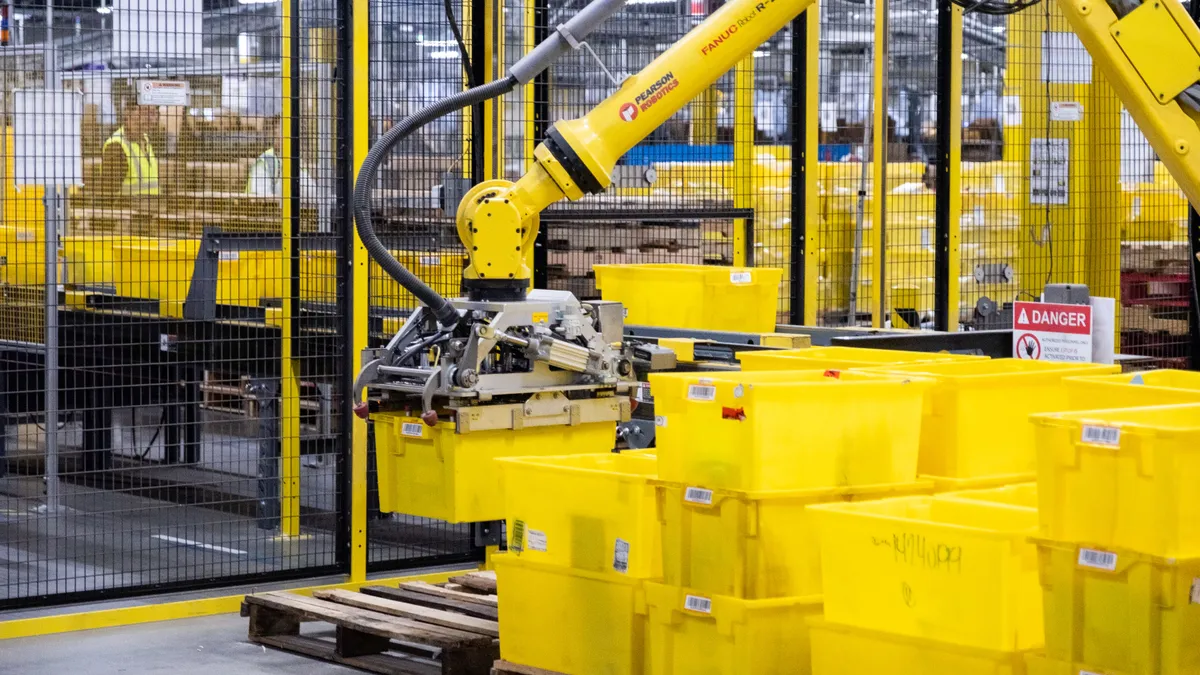Dive Brief:
- Retail competition is alive and well, Amazon controls a relatively small share of retail, and it's mostly consumers (not Amazon) who are calling the shots in the market, Moody's analysts led by Charlie O'Shea argued in a report issued this week.
- The report follows a July announcement by the Department of Justice that it would look into whether online platforms have stifled competition and violated antitrust laws. The Moody's analysts noted that "[w]hile the DOJ did not name Amazon, we assume that the world's biggest online retailer is a target." Meanwhile, the European Union is currently investigating Amazon, specifically around how it uses "competitively sensitive information" from third-party sales on its platform.
- The analysts noted that Amazon "maintains unquestioned dominance in the third-party online marketplace," and is "clearly the dominant online US retailer in terms of market share and revenue." But they also point out that as a retailer Amazon only has leading market share in physical media, and even in third-party marketplaces there is growing competition.
Dive Insight:
As a measuring stick of competition, O'Shea and his team pointed to the massive investments that retailers across the spectrum are making in their digital and omnichannel capabilities. Customers are the drivers and beneficiaries in this view, though Amazon has built an "Autobahn" for them to drive on, the analysts wrote.
Walmart arguably has been the most active in its efforts to compete in a retail world reinvented by Amazon. Following its acquisition of Jet and hire of Marc Lore, the retail giant has made massive investments in its e-commerce unit and technology as it tries to catch up with the e-commerce giant.
But for the billions spent and growth in digital sales, Walmart — the largest company in the world by revenue — has managed to just barely move the needle in its share of the online market. From 2017 to 2019, Walmart's share went from 3.3% to 4.6%, according to eMarketer. Meanwhile, e-commerce leader Amazon expanded its share by even more over the same two years — specifically it increased by 5%, growing its share of online sales from 42% in 2017 to 47% in 2019.
All those efforts to play catchup have taken their toll on the Walmart organization, according to Recode, which reported this summer that Walmart's digital business faced a $1 billion loss for the year and growing skepticism among the company's U.S. leadership.
That calls into question the sustainability of trying to catch up with Amazon. To some researchers, the business of the internet may be structured to create monopolies and favor early movers. As George Washington University professor Matthew Hindman points out in his book "The Internet Trap: How the Digital Economy Builds Monopolies and Undermines Democracy," small differences in the speed and quality of websites, and the ability to collect and analyze data, can lead to massive differences in market share after a few years that are difficult if not impossible to reverse.
Critics of Amazon's market power look less at its share by categories and more at how the company has delayed profits to usurp competitors and build crucial e-commerce infrastructure as well as an online market that it controls that many brands and smaller-scale players can't afford to avoid. Critics also focus on the company's use of data from third-party sales as a possible conflict of interest, given Amazon's own private label and retail sales.
In addition, Retail Industry Leaders Association (RILA), the trade group representing Amazon and Target among others, in comments to federal investigators also noted how just two firms — Google and Amazon — control most retail product search online, which the group argued has a huge impact on consumer behavior.
















